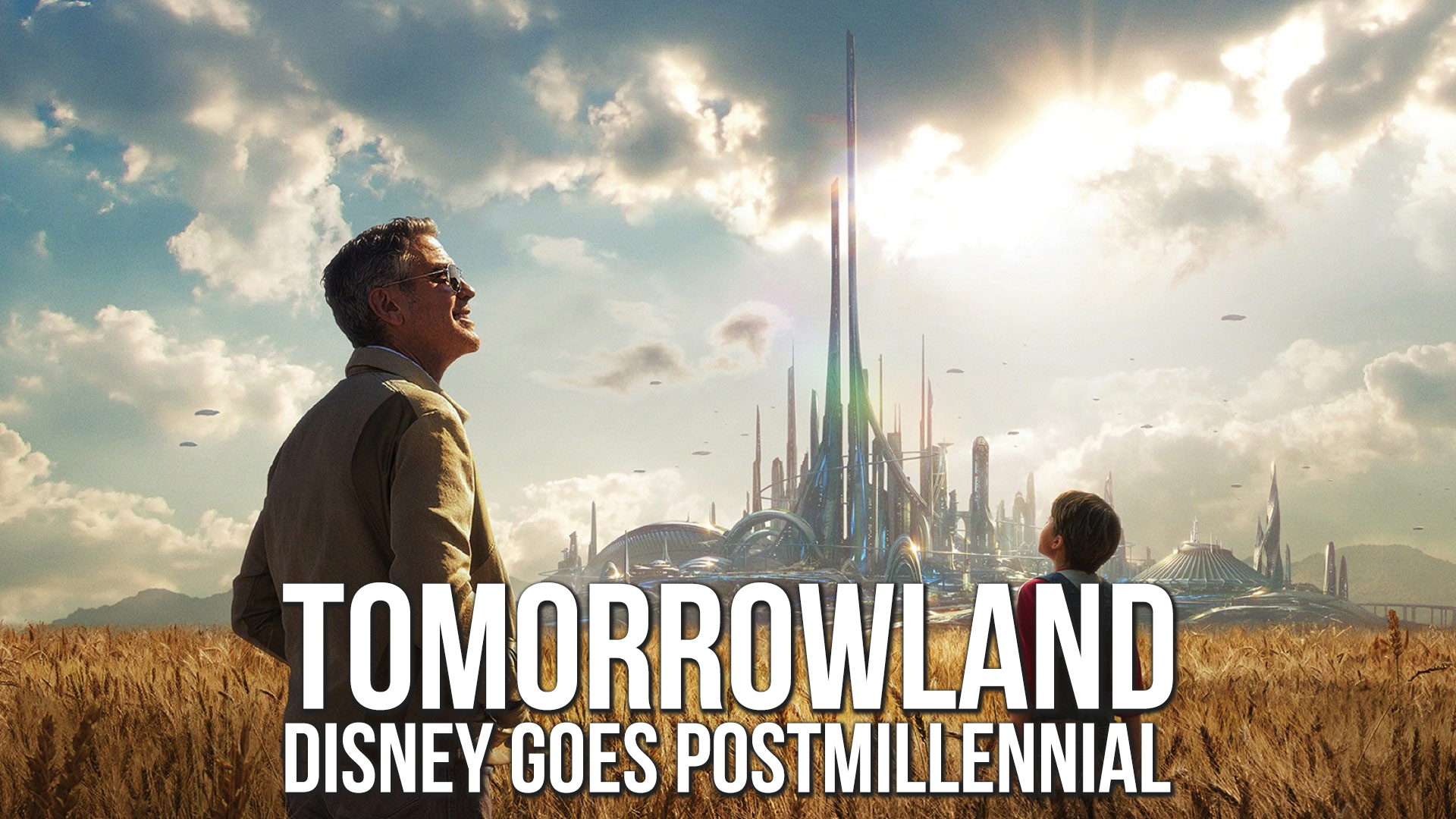The Hunger Games.
Mad Max: Fury Road.
Left Behind.
Wait, Left Behind? What’s a Christian work of fiction doing among those secular entertainments? Well, they all have one overriding theme: Pessimism. In The Hunger Games the world ends and afterward we all end up hunting and killing each other. In Mad Max: Fury Road the world ends and we all end up craving water and gasoline and killing each other. In Left Behind the world ends and we all end up talking about the Rapture and killing each other. Each work trades in on its foundation of doom and gloom. There’s much success to be found in the Apocalypse.
As a matter of eschatology (the study of the end of the world), the doctrine of postmillennialism derives its optimistic worldview from a sound Biblical belief in the victory of the kingdom of Jesus Christ in time. Tomorrowland doesn’t contain any messages about the ever-expanding kingdom of God., but it is positively dripping with unabashed optimism and hope. In the form of a twisty and character-driven science fiction adventure, co-writer/director Brad Bird presents a strong message of general optimism that puts the pessimistic Christian message of Left Behind to shame.
Tomorrowland has been marketed with minimal specifics. The trailers/posters/TV spots promise viewers a detailed look at a beautiful and shiny new world but with little to no context to the impressive visuals. The film itself begins also with a bare minimum of specifics, inviting the audience to piece together the clues as some sort of cinematic jigsaw puzzle; we know Tomorrowland is going somewhere, but we’re not sure where until the last piece falls into place. The story’as much as can be revealed without giving too much away’involves a bright-eyed and hopeful dreamer (Britt Robertson) who is given a mysterious pin that transports her to a futuristic city with bright blue skies, sleek urban architecture and flying cars. The city seems like something out of a dream, or is it? The reason that this pin fell into her possession has something to do with Frank Walker (George Clooney), a cynical middle-aged man who also visited this mysterious city as a child but emerged from the experience a bitter and resentful adult. There’s also’for good measure’pre-teen androids, giant robots, time travel, and a nifty rocketship hidden in the Eiffel Tower. Science fiction lovers will have a blast.
Tomorrowland works best if you know less going in. The story moves along at a clip’helped immensely by Bird’s splendid visuals and some inventive action sequences. By the time the film lays all its cards on the table, you’ll either embrace or be turned off by its unapologetic optimism. I’ve never seen any film take such a strong stand on maintaining a hopeful and upbeat attitude, much less a mainstream Hollywood summer blockbuster. Not only does Tomorrowland give us a vivid look at a future that’s bright, clean, and technologically advanced, it also goes out its way to preach against the sort of progressively downbeat apocalyptic junk that we as American entertainment consumers seem to be drawn to like flies.
The dystopian drama of The Hunger Games? We love it. The dreary desert wasteland of Mad Max: Fury Road? 98% certified fresh at RottenTomatoes.com. Wars? Floods? Tornadoes? Our eyes are glued to the screen as disasters and turmoil play out on our flatscreen TVs. To my pleasant surprise, Tomorrowland carries with it a strong rebuke of our appetite for destruction and despair. This film dares us to turn off the gloom and the carnage and actually dare to desire a better world to live in. This film posits the idea that the future we crave through our movies, television, books, and video games is the future we will receive. How can we say we want a brighter future when we are drawn to a future in which teenagers hunt and kill each other? How can we say we desire a hopeful tomorrow when we thrive on video games about the next zombie apocalypse? We do what’s important to us; everything else is just talk. Tomorrowland challenges us to actually act and live like we want a better world. Some might think the film gets a tad preachy, especially toward the end. I loved the message, so preach it, brother!
What better and more edifying message could be there for Christians who are told by our Savior to go out into the world and change it (Matthew 28:18-20)? There are no overt Christian references in Tomorrowland, but this film is much more Christian than Left Behind could ever hope to be. Hollywood and premillennial Christianity has peddled pessimism for so long that the wide-eyed optimism of Tomorrowland seems nothing less than a breath of fresh, much-needed air.
Postmill, indeed.
- An Open Letter to Charlie Sheen - Nov 17, 2015
- “Jurassic World:” A Sequel That Knows It’s a Sequel - Jun 15, 2015
- “Tomorrowland:” Disney Goes Postmillennial - May 23, 2015


[…] Read Shane Dodson’s Review of the film on Gospel Spam! […]